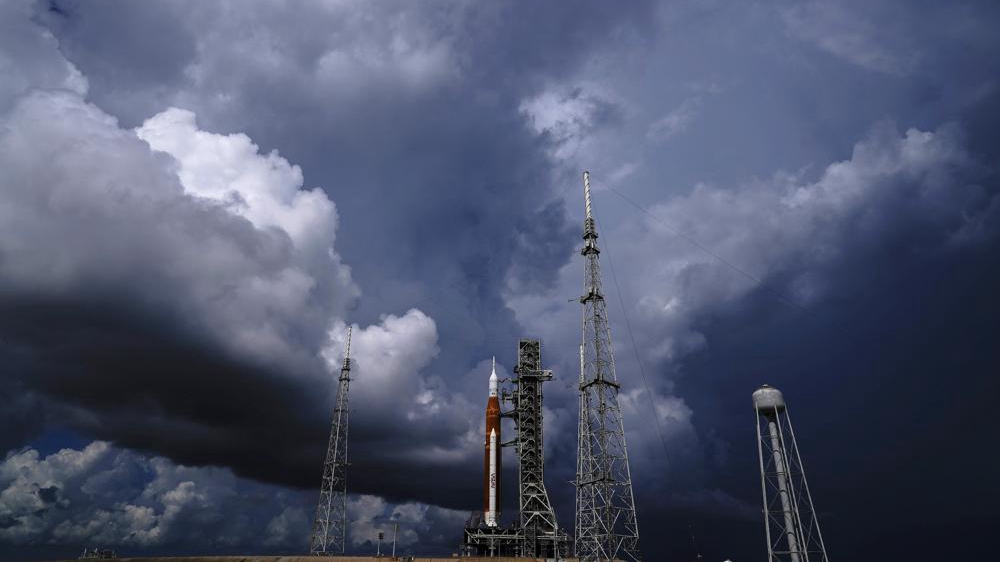
The NASA moon rocket stands on Pad 39B before a launch attempt for the Artemis 1 mission to orbit the moon at the Kennedy Space Center in Cape Canaveral, Florida, Friday, September 2, 2022. /AP
The NASA moon rocket stands on Pad 39B before a launch attempt for the Artemis 1 mission to orbit the moon at the Kennedy Space Center in Cape Canaveral, Florida, Friday, September 2, 2022. /AP
The launch of NASA's Artemis 1 moon mission scheduled on September 27 was delayed again, this time because of a tropical storm that's expected to become a major hurricane, the agency said.
"NASA is foregoing a launch opportunity Tuesday, September 27, and preparing for rollback while continuing to watch the weather forecast associated with Tropical Storm Ian," NASA said in a statement.
The Artemis 1 mission was set to send the Space Launch System (SLS) rocket and an uncrewed Orion spacecraft on a roughly 40-day journey around the moon.
It's the third delay in the past month for the lunar-orbiting test flight with mannequins in place of astronauts, which is a follow-up to NASA's Apollo moon-landing program a half-century ago.
Hydrogen fuel leaks and other technical issues caused the previous two scrubs.
Currently churning in the Caribbean, Tropical Storm Ian is expected to become a hurricane by Monday and slam into Florida's Gulf coast by Thursday. The entire state, including NASA's Kennedy Space Center, is in the storm's cone, a weather projection that shows the probable path of a storm's center.
Given the forecast uncertainties, NASA decided on Saturday to forgo Tuesday's planned launch attempt and instead prepare the 98-meter rocket for a possible return to its hangar. Managers will decide on Sunday whether to haul it off the launch pad.
If the rocket remains on the pad, NASA could try for an October 2 launch attempt, the last opportunity before a two-week blackout period. But a rollback late on Sunday or early Monday would likely mean a lengthy delay for the test flight, possibly pushing it into November.
The Space Launch System rocket is the most powerful ever built by NASA. Assuming its first test flight goes well, astronauts would climb aboard for the next mission in 2024, leading to a two-person moon landing in 2025.
(With input from AP)

